If you are planning a trip to Thailand, you have made an excellent choice. This country is characterised by unspoilt nature with places still intact, untouched by mass tourism. Its enchanting bays and breathtaking beauty are just some of the exciting details you can ‘experience’ when visiting Thailand.
But Thailand is also something else. There are chaotic, lively cities, full of fun with peaks of transgression that fascinate for their contradictory reality.
The heart of this land, however, is tradition. Its millenary culture, which is expressed in various declinations and religions that coexist within the country, makes it a place of magical mixes capable of transporting the traveller into a kaleidoscopic dimension of existence: an enriching and transformative experience that holds a strong emotional charge.
This journey will reserve you magical moments thanks to the charm of the places you will visit. However, in order to fully enjoy the wonders of Thailand, it is necessary, as with any trip to lands and cultures different from our own, to prepare yourself with some precautions, so as not to leave anything to chance and to enjoy the experience without any inconveniences. Here are a few suggestions.
SAFE TRAVELLING IN THAILAND: DOCUMENTS REQUIRED TO ENTER THE COUNTRY
To enter Thailand it is essential to have your Passport with you, which must be valid for at least six months before it expires when you enter the country and have two blank pages for entry visa stamps. Important note: tourists must carry the ‘original’ passport at all times, so any photocopies of the document will not be considered valid.
TRAVEL SAFELY IN THAILAND: VISA FOR ENTRY INTO THE COUNTRY
If you are travelling to Thailand for tourism purposes within 30 days, no visa is required. When you land at the airport, a stamp will be applied to your passport, which acts as an entry visa and allows you to stay in the country for a maximum of 30 days, as mentioned above.
If, on the other hand, you arrive via the land border, your stay in the country may be limited to 15 days only, depending on the decisions of the local immigration authorities. The Immigration Authorities may, in any case, request documents or certifications attesting to the tourist’s actual capacity for economic subsistence, in addition to the documents necessary for leaving the country (return air ticket).
The classic tourist visa, which is valid for 30 days, can only be renewed once and for a maximum of another 30 days by going to the local immigration office.
CURRENCY AND CUSTOMS REGULATIONS
There are no particularly important rules on the entry of currency into the country.
IMPORT BANS AND LIMITS
There are strict rules regarding the importation of certain types of goods into Thailand by travellers entering the country. Specifically, great care must be taken with alcohol and cigarettes, cigars or tobacco. Only one litre of alcoholic beverage and only 200 cigarettes or a maximum of 250 grams of tobacco or cigars may be brought into Thailand (duty-free). If this limit is exceeded, heavy fines are levied at the border crossing and, in some cases, imprisonment is even possible if the fine is not paid immediately.
Another strict regulation concerns electronic cigarettes: it is strictly forbidden to possess, import, export or sell electronic cigarettes and their accessories. Anyone caught in possession of electronic cigarettes, including foreigners who are visiting the country as tourists, are liable to fines of up to five times the value of the object, with a prison sentence also possible.
A further restriction on the import of different special goods has been in force since 2014. There is a limit of 10,000 Bath (the equivalent of approximately €230) for all items purchased during a stopover in Thailand (in duty-free customs) that were not bought for personal use, for example perfumes, clothes, watches, technology equipment, cameras or similar.
If you exceed this limit, you will be obliged to pay the import tax in order to avoid confiscation of the purchased items and a report to the relevant authorities.
It is also forbidden to bring counterfeit products or currency into the country, as well as animals belonging to protected species.
Thailand has other restrictive regulations for specific goods.
RULES FOR BRINGING PETS INTO THAILAND
A list of information on the various regulations in place regarding the importation of pets from Thailand can be found on the website of your Embassy.
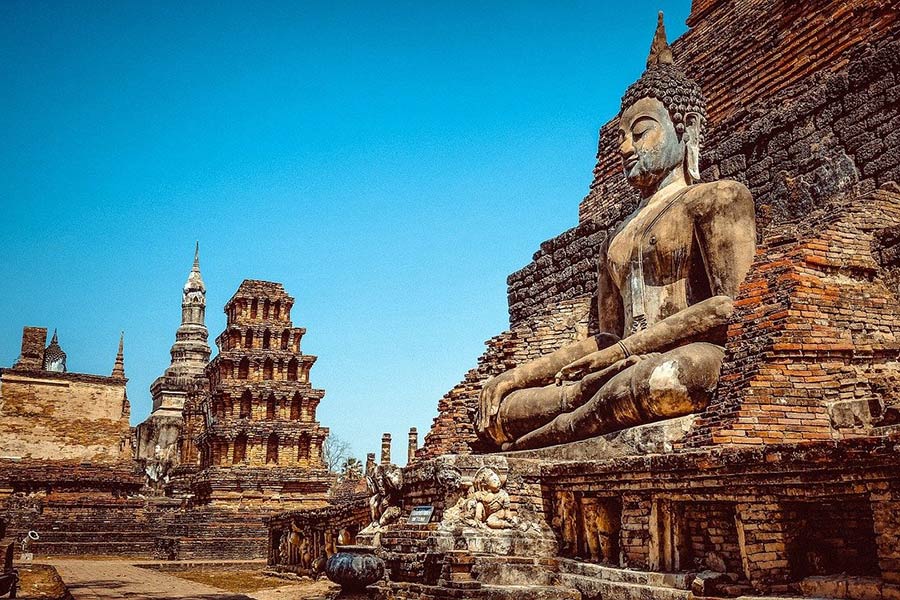
SAFE TRAVELLING IN THAILAND: ADVICE ON THE HEALTHCARE SITUATION
As far as the health situation in Thailand is concerned, we can undoubtedly affirm that the level of quality of the structures dedicated to public hospitalisation, as well as the private structures, is certainly good and the assistance is of excellent quality.
DISEASES IN THAILAND
In Thailand, there has been a slight increase in cases of dengue fever, which is considered endemic to the country. The locality most affected by this disease is Phuket, followed by the provinces of Pangnga, Nakornpathom and Krabi. Dengue cases have also been detected in the metropolitan area of Bangkok, the capital.
The advice for travellers is to take the usual precautions against insect bites, especially the mosquito responsible for this disease, and to keep their health under control even in the days following the return home. Thailand’s healthcare institutions have set up targeted protocols to combat the spread of infection and control the risk of epidemics. In 2019, cases of Chikungunya fever increased in southern Thailand. This virus, like Dengue, is spread by mosquitoes and has the same symptoms as a flu syndrome (fever, joint pain, headache, vomiting, nausea and tiredness). The suggestion is to protect yourself with specific repellents against mosquito bites.
There are also some outbreaks of typically tropical diseases such as malaria or Japanese encephalitis. AIDS is also widespread, but health protocols and prevention are able to contain its expansion.
Avvertenze e suggerimenti sanitari per un viaggio sicuro in Thailandia
Per chi intende viaggiare in sicurezza in Tailandia, è consigliato munirsi di un’assicurazione per la copertura delle spese mediche, compreso un eventuale rientro in Italia con volo attrezzato.
HEALTH WARNINGS AND TIPS FOR SAFE TRAVELLING IN THAILAND
If you are planning to travel safely to Thailand, it is advisable to take out medical insurance to cover medical expenses, including a possible return home on an equipped flight.
VACCINATIONS FOR TRAVELLING IN THAILAND
Only one vaccination is required in Thailand, against Yellow Fever, but only for travellers coming from countries at risk of infection (and over 1 year old) and for those who have stayed for more than 12 hours at an airport in one of the countries at risk (Senegal, Guinea, Sudan, Ethiopia and Kenya in addition to Congo, Uganda and Gabon – Brazil, Colombia, Peru, Bolivia and Paraguay).
TRAVELLING SAFELY IN THAILAND: MEDICINES FOR PERSONAL USE
If you need to take some essential medicines with you to Thailand, there are rules established by the country’s laws that must be followed precisely.
On arrival at the airport, these medicines for personal use, which are defined as ‘over-the-counter’ and are issued without the need for a doctor’s prescription (such as aspirin, anti-diarrheals, paracetamol) may be brought into the country without any particular restrictions.
As for medicines that require a doctor’s prescription, there are different rules that must be scrupulously followed to avoid seizure by the customs authorities:
- each medicine must be presented in its original box (no loose medicines, either tablets or bottles without packaging);
- each package of medicine must be accompanied by the respective prescription written in English, in which the type of medicine, the quantity and what type of medical need it solves must be detailed;
- upon arrival at the airport, the traveller must declare, even before arriving at customs, the entry of medicines for personal use. This declaration must be validated by the presentation of the medical prescription in English to be made at the local counter of the Food & Drug Administration Office, which is present in every airport where baggage is collected before entering customs. It should be noted, therefore, that drugs for personal use that are not properly declared at this office risk being seized by the Customs Officer and no type of appeal is contemplated. Anxiolytics and benzodiazepines (Xanax and Alprazolam, for example) are considered to be narcotic substances, so report possession if you are carrying these drugs with you, to avoid problems.
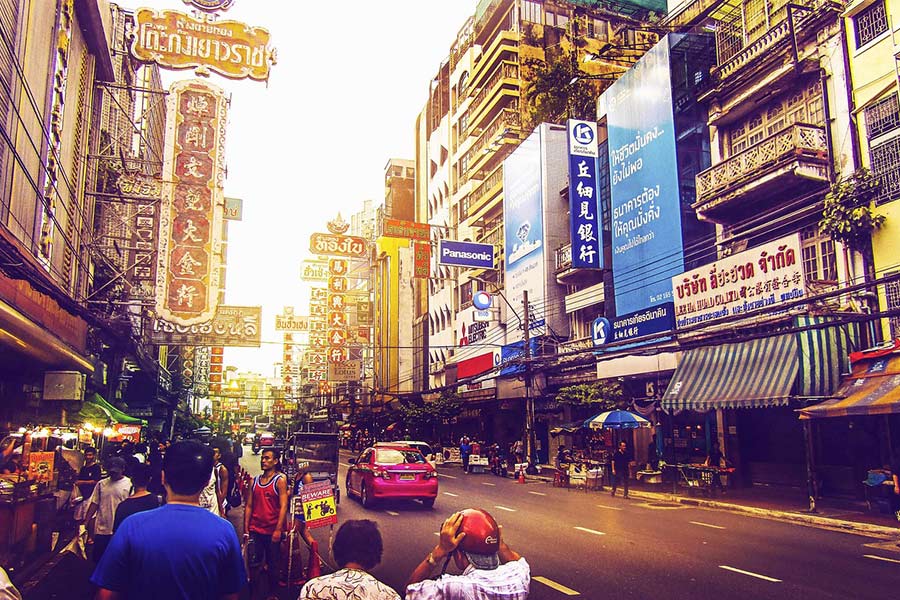
SOME ADVICE ON FOOD AND DRINK
Here are a few tips on eating in Thailand to help you avoid common problems to travellers in these areas:
- avoid eating game meat (poultry mainly);
- eggs should always be eaten well cooked;
- avoid eating food or drinks whose origin is uncertain;
- drink only water or packaged drinks, without adding ice if you are not sure of the hygiene of the place where you are staying;
- drink little but often to avoid dehydration, a frequent problem due to the tropical climate.
Having dealt with the health aspect and the precautions to be taken during your trip to Thailand, let’s now take a look at some indications regarding safety in the country.
SAFE TRAVELLING IN THAILAND: GENERAL SAFETY TIPS
Here are a few tips to help you travel safely in Thailand.
SOME GENERAL NOTES ON PUBLIC ORDER AND CRIME
In July 2019, a new government took office in Thailand, removing the special powers regulation still in place under the Interim Constitution. The previous government had granted extraordinary powers to law enforcement agencies in the event of national security risks or dangers, which also applied to the civilian population, and some of these regulations are still officially in force today.
Airports, connecting roads and means of transport such as buses, trains and subways are in regular operation throughout the country. Tourist sites are all accessible and the Thai police authorities have not reported any restrictions on travel or entry to the capital or other parts of the country.
A few sporadic episodes of petty crime such as petty theft may occur and require only a few simple precautions dictated by common sense.
SECURITY AND THE RISK OF TERRORISM
Some episodes of terrorist origin have occurred in recent years, but the country’s authorities have excellent control of the territory and keep a careful watch, especially in areas/objectives considered as ‘sensitive’ sites.
SAFE TRAVELLING IN THAILAND: AREAS TO BE CAUTIOUS ABOUT
In the south of the country (Yala, Narathiwat, Pattani) as well as in the areas of Chana, Tepha, Saba Yov and Na Thawi (Songkhla Province) there are tensions due to separatist groups mainly of Muslim religion and therefore it is suggested to avoid transit in these locations as a preventive measure. Attention should also be paid to Satun Province and the borders in the north of the country, especially with Myanmar, Laos and Cambodia.
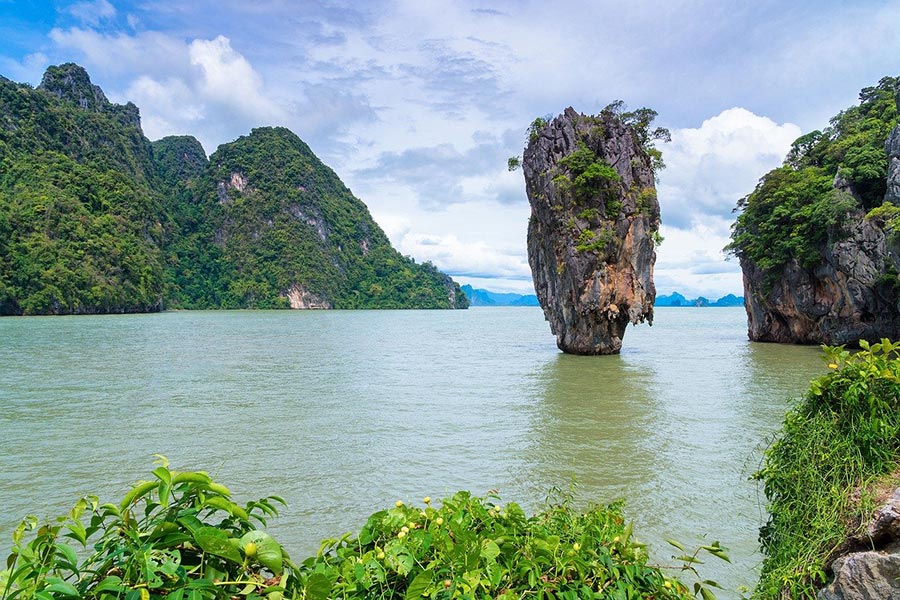
TIPS AND ADVICE FOR SAFE TRAVELLING IN THAILAND
Here are a few notes that we think may be useful to travellers on Thai soil:
- do not use animated or aggressive tones when interacting with locals, especially in public, as this can lead to hostile reactions, although Thai citizens are generally polite;
- avoid going to areas where demonstrations are taking place and where there are gatherings;
- avoid visiting areas that are prone to flooding, especially during the rainy season between June and October;
- do not pass through the peripheral areas of the cities where you stop, especially in the evening;
- do not frequent establishments of dubious repute, as there is a risk that drinks with narcotics may be served for the purpose of theft;
- be careful when using your credit card as there is a risk of it being cloned, and shopping centres are not exempt from this problem;
- always keep receipts for the purchases you make, as there may always be checks, especially in shopping centres and at the airport (the checks are very strict and making a complaint may have unpleasant consequences);
- be very careful when you are in the ‘duty-free’ area of the airport, especially at Suvarnabhumi International Airport in Bangkok: the shops in this area have displays located in the open areas, with surveillance cameras and anti-theft sensors which are easily activated if you leave the space in front of the shop, even if inadvertently, just to get a better look at the product (be careful because the laws governing theft, or even attempted theft in Thailand, are very strict even for items of little value);
- only buy valuables from certified and reputable shops as there have been reports of scams perpetrated by shopkeepers when selling jewellery;
- be very careful when choosing who to hire for a motorboat if you decide to go on an excursion, there have been problems with this means of transport as often those who drive them do not have the necessary training to support the power of the vessel;
- care should also be taken when hiring jet skis and water scooters in seaside areas as there are often price scams;
- in the centre of Bangkok, especially in the evening, watch out for attempted muggings, which are possible due to the chaos of traffic that allows criminals to escape, especially in areas frequented by foreign tourists.
SOME OF THE RELEVANT LOCAL REGULATIONS
SMOKING BAN
As of 31 January 2018, smoking is banned on 24 beaches in Thailand, which are frequented by most foreign tourists. Keep in mind that offenders risk up to a year in prison and/or a fine of 100,000 Bath (approximately €2,700). We recommend that you follow these rules carefully as the authorities in Thailand are very strict about this ban. The laws state that offenders will be placed under arrest for the entire period necessary for the investigation and subsequent trial, unless they agree to pay a substantial bail.
SEVERE PENALTIES EVEN FOR MINOR OFFENCES
What might be considered ‘minor offences’ in your country are considered serious offences in Thailand and face severe judicial consequences. Theft of items of little value, the purchase of drugs for personal use, the use of electronic cigarettes, and staying in Thailand beyond the expiry date of your visa result in immediate arrest and prosecution. In Thailand, anyone suspected of a crime, including foreigners, will have their passport confiscated to prevent a possible escape until the trial is over. In addition, once the trial for the crimes described above is over, foreigners are not released but are formally deported, and only after spending several days in the Bangkok Immigration Detention Centre and paying all the costs of the process, which are borne entirely by them.
Equally strict is the law on possession and distribution of hard drugs, even in small doses. The law provides for immediate arrest with controls and urine tests (to prove traces of drugs). In cases of drug dealing, the authorities apply very severe penalties, and even, in serious cases, local regulations can go as far as death penalty.
REGULATIONS FOR CRIMES AGAINST MORALS, SEXUAL ABUSE OR VIOLENCE AGAINST CHILDREN
We urge travellers to bear in mind that, in the case of offences committed against minors (whether unintentional or caused by fortuitous circumstances and misunderstandings), prison sentences of up to 40 years can be imposed. It should also be noted that such offences (prostitution, exploitation, sexual abuse), are also prosecuted upon return to your country according to the regulations.
RULES FOR THE OFFENCE OF ‘LESE MAJESTY
Beware of the current legislation governing offences of insulting the Sovereign or members of the royal family, as well as the Buddhist religion. The penalties for this type of offence can be up to 15 years’ imprisonment. This type of crime affects the susceptibility of the population to the point of provoking unexpected reactions, despite the country’s widespread tolerance. It should be noted that this legislation is also used in the case of verbal statements between private individuals or comments on social networks, as well as in the case of insulting the symbols of the nation (for example the flag).
If you encounter any difficulties or problems with the police, please inform your embassy for assistance.
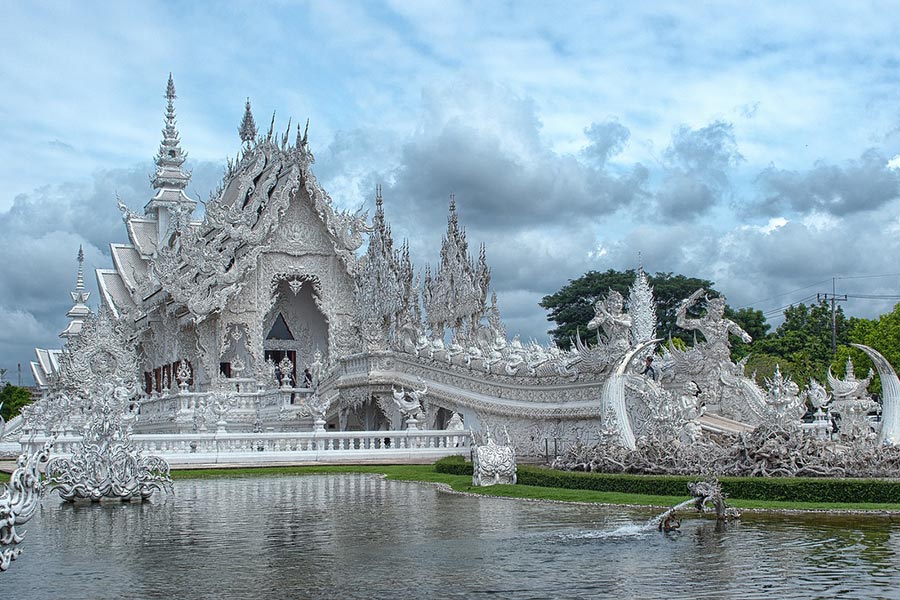
TRAVELLING SAFELY IN THAILAND: MOBILITY AND TRANSPORT
TRAFFIC REGULATIONS
In Thailand, driving is on the left-hand side of the road with overtaking in the right-hand lane. Motorcyclists must wear helmets and seatbelts must be worn in the front seats of vehicles.
Due to the chaos of traffic and left-hand drive, there have recently been a number of accidents involving tourists and our compatriots, which have caused some serious problems. Very often the scooters that are rented in the various resorts and hotels are not registered and therefore could not circulate on the road. Therefore, before renting any vehicle, make sure it has the correct insurance policy and do not leave your passport as a guarantee, but only a deposit. Be sure to take out health insurance to cover any (hopefully unnecessary) hospitalisation costs as these are quite high in Thailand.
TRANSPORT EFFICIENCY
In general, buses, trains and air connections with the various areas cover all areas of the country. The major airlines also have a stopover in Bangkok.


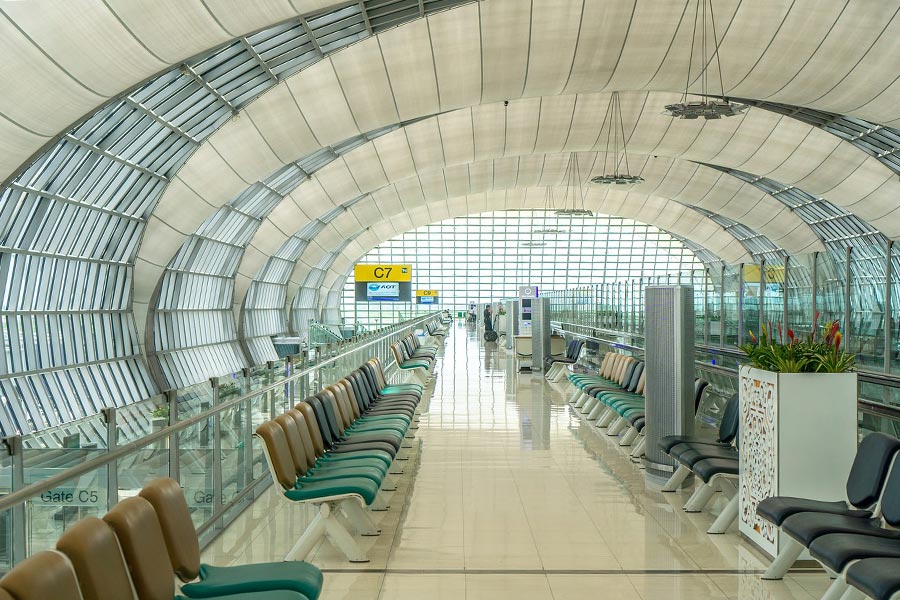
Lascia un Commento